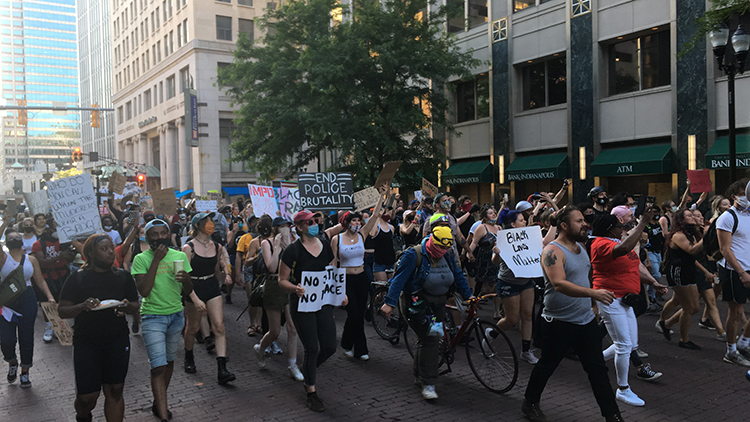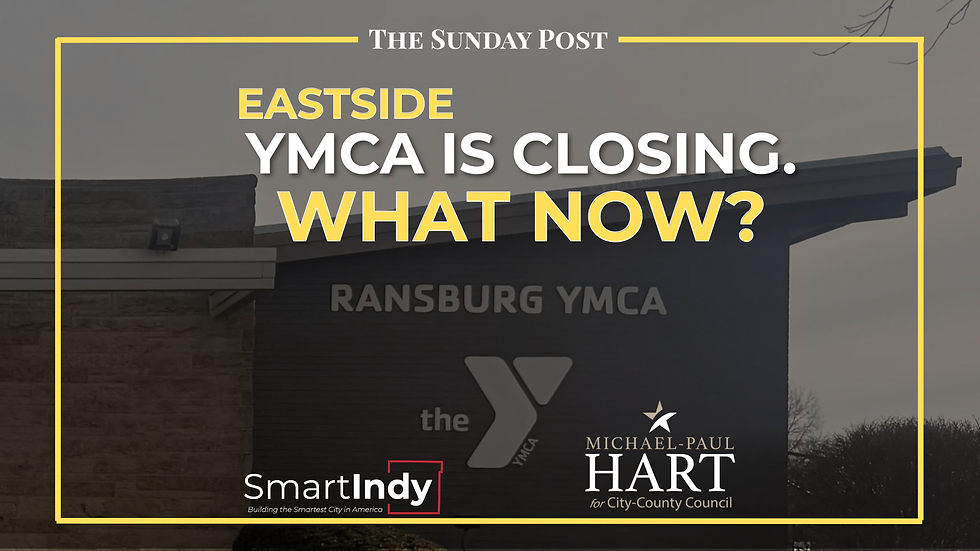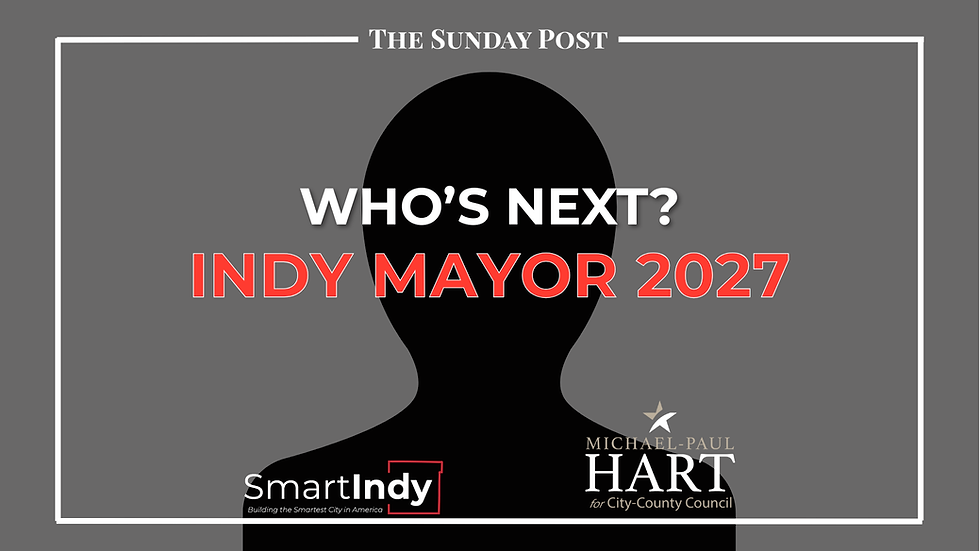Update on Indy – August 10, 2025: Indianapolis Budget 2026 -$2B at Stake + Public Safety Package
- Michael-Paul Hart
- Aug 10, 2025
- 4 min read
By Minority Leader Michael-Paul Hart
Working to Make Indianapolis the Smartest City in America
Public Safety Package Announced

This week, our caucus introduced a Public Safety Package aimed at tackling Indy’s most pressing challenges: staffing shortages, rising juvenile violence, and slow police policy changes. Each proposal is focused, practical, and built from years of conversations with public safety leaders, community stakeholders, and residents.
Remove Outdated Residency Requirements
After years of speaking with department leaders from IMPD, DPW, and Business & Neighborhood Services, I consistently heard the same thing: Indianapolis has high workloads, complex use cases, and the lowest pay in the region. Recruiting and retaining talent is a constant struggle.
When we researched the municipal code, we found that the residency requirement was created in 1977. Today, nearly 50% of our police officers reside outside of Indy, often due to housing costs or concerns about local schools. Meanwhile, local rules vary: some roles allow exceptions, others don’t.
Our proposal: one consistent policy for all city employees that allows residents from Marion and nearby counties to serve. Removing this barrier is a practical step toward improving service delivery and ensuring equal opportunities for current and future employees.

Strengthen Parental Accountability for Juvenile Curfew Violations
Several recent incidents involving juveniles, up to and including a homicide, have made it clear that we need stronger tools. At the July full Council meeting, we introduced a last-minute proposal to tighten curfew hours; the final vote is scheduled for Monday, August 11, at 7 p.m. in the Public Assembly Room.
After the meeting, I met with civic, faith, public safety, and business leaders. The consensus: penalties must be enforceable. My original draft focused on behavioral correction, but legal guidance indicated that moving to civil fines was most appropriate. It is worth knowing that civil citations are handled by the City Prosecutor (not Prosecutor Mears). The proposed penalties are for the Parent or Guardian: $500 for a second violation, and $1,500 for any subsequent breaches.

Restore the General Orders Board to Advisory Status
In 2020, the Council established a General Orders Board to oversee police protocols, commonly referred to as “General Orders.” However, the board struggles to meet, often failing to make a quorum, which slows updates that impact public safety. Equally important, the board is harming officer morale and impacting police officer recruitment. Public safety needs flexibility. Right now, the Chief can’t issue or amend orders without a board that barely meets.
My proposal gives authority to the Chief, while preserving community input through written recommendations and open meetings via an advisory-only board.
Article from 2020 when the board was introduced.
Your Guide to the Indianapolis Budget 2026 Process
The City-County Council’s Indianapolis budget 2026 season isn’t just paperwork, it’s where we decide how $2 billion in taxpayer dollars will be spent next year. From police staffing to street repair, every service runs on these numbers. Here’s how the process works and how you can be part of it.
📢 Budget Introduction
Date: Monday, August 11 at 7 p.m.
Location: Public Assembly Room, City-County Building
This is the official kickoff. The Mayor presents a complete budget proposal for the year ahead, broken down by department (public safety, public works, parks, etc.). Council members receive the proposal publicly for the first time.
Why it matters: This is where you see the administration’s priorities laid out in black and white. It’s the starting point for debate and changes.

🗂 Committee Reviews
After the introduction, the budget is divided into sections and sent to Council committees that specialize in each area.
Step 1 – Department Presentations (August & September)
Each City department or agency presents its proposed budget to its respective Council committee. These presentations explain the department’s goals, staffing levels, and planned projects for the year ahead.
No votes are taken at this stage it’s about information gathering and public transparency.
You’ll see department leaders answer Councilor questions and walk through their budget requests by character.
Step 2 – Review & Analysis Meetings
Following the presentations, each committee meets again to review and analyze the department budgets in detail. This is where:
Councilors debate potential changes.
Amendments can be introduced and discussed.
The committee makes its final recommendation to the full Council on whether to approve, amend, or reject the department’s budget.
🎤 Council Public Hearing and Final Passage
Step 3 – Public Hearing
Sept 22 – 7:00 PM – Public Assembly Room
This is the public’s formal chance to speak to the full Council about the budget.
Comments can be for or against specific items, with suggestions for changes.
⚖️ Step 4 – Full Council Review and Final Vote
October 6th – 7:00 PM – Public Assembly Room
The Council takes a final vote on the budget.
If approved, it goes into effect January 1, 2026. If rejected, the prior year’s budget remains until a new one passes.
How you can engage:
✅ Attend both the presentation meeting and the review/analysis meeting for departments you care about.
✅ Use the first meeting to learn the details and the second meeting to advocate for changes before the committee votes on its recommendation.
✅ Call or email your City-County Councilor and tell them your thoughts.

Thank you for reading and for supporting common‑sense leadership. Together, and with the community driving accountability, we are turning bold ideas into real‑world results.
Accountability, Transparency and Local Leadership
See you next week with more updates from the Neighborhood.





Comments